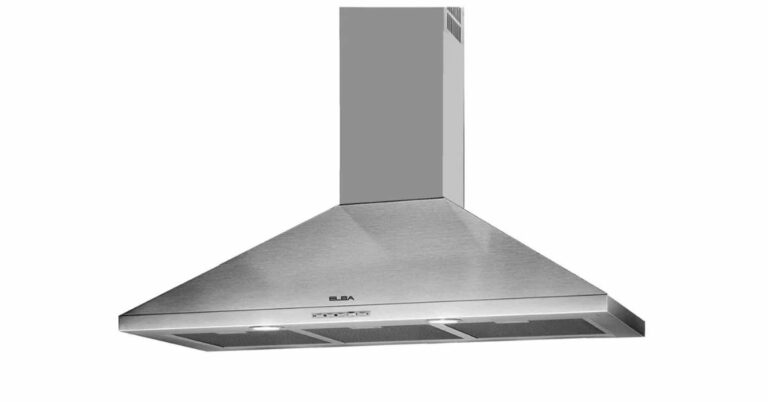Sales Tracking Software for Small Business: A Game-Changer for Growth and Efficiency
For small businesses, maintaining growth and efficiency can often be a challenge. With limited resources and a growing need to stay competitive, having the right tools in place is crucial for success. Sales Tracking Software For Small Business can significantly streamline operations, provide valuable insights, and help small businesses manage their sales processes more effectively.
In this article, we’ll explore how sales tracking software works, its key benefits, and why it’s an essential tool for small businesses looking to improve their sales performance and drive growth.
What is Sales Tracking Software?
Sales tracking software is a tool designed to help businesses monitor and manage their sales processes. It helps track various sales activities, from leads and prospects to closed deals and customer interactions. The software consolidates all relevant sales data in one place, providing valuable insights that can be used to improve sales strategies, enhance customer relationships, and ultimately increase revenue.
For small businesses, having an efficient sales tracking system is essential for streamlining workflows, optimizing performance, and staying on top of daily tasks. Whether you are a startup, a small retailer, or a service-based business, sales tracking software is a valuable asset that can provide real-time updates and automated reports to track progress and success.
Key Features of Sales Tracking Software for Small Businesses
1. Lead and Opportunity Management
One of the key features of sales tracking software is the ability to manage leads and opportunities effectively. The software allows businesses to capture and store lead information, including contact details, interactions, and any relevant notes. It also helps track the status of opportunities, ensuring that sales teams follow up on prospects at the right time. By keeping everything in one place, businesses can avoid missing valuable leads and can prioritize prospects based on their likelihood of conversion.
2. Automated Sales Reporting
Sales tracking software simplifies the process of generating sales reports by automating the task. With built-in reporting tools, businesses can access detailed insights about their sales performance, including revenue, conversion rates, and sales cycle length. These reports help small business owners make informed decisions by identifying areas of improvement, successful sales strategies, and trends over time. Customizable dashboards allow users to view data in ways that are most relevant to their specific business needs.
3. Sales Pipeline Management
Sales pipeline management is an essential feature of sales tracking software. It helps businesses visualize their sales process and track the journey of leads from the initial contact to closing the deal. With a sales pipeline, businesses can quickly identify where each lead stands, ensuring that no opportunities fall through the cracks. The software typically includes customizable stages to reflect the business’s unique sales process, such as prospecting, qualification, negotiation, and closing.
4. Task and Activity Management
Sales tracking software helps small businesses stay organized by keeping track of sales tasks and activities. The software allows users to schedule follow-ups, meetings, and reminders, ensuring that sales teams stay on track and never miss a deadline. Task management features can be synced with calendars and integrated with communication tools, providing a centralized platform for managing all sales-related activities.
5. Customer Relationship Management (CRM) Integration
Most sales tracking software solutions are designed to integrate with CRM systems, allowing businesses to manage customer relationships more efficiently. With CRM integration, businesses can access valuable customer data, such as purchase history, preferences, and communication history. This information helps sales teams tailor their approach to each customer, improving the chances of converting leads into loyal customers.
6. Mobile Accessibility
Sales tracking software for small businesses is often equipped with mobile access, allowing sales teams to update information and track progress on the go. This is especially important for businesses with remote or field-based sales teams, as they can stay connected and updated no matter where they are. Mobile accessibility ensures that sales professionals can respond quickly to customer inquiries, log new leads, and update deal status without needing to return to the office.
7. Customizable Dashboards
A well-designed dashboard gives small business owners and sales managers a quick overview of their sales performance. Customizable dashboards allow users to personalize the interface according to their specific needs. Whether it’s tracking sales goals, monitoring KPIs, or reviewing team performance, customizable dashboards make it easier to focus on the metrics that matter most to the business.
Benefits of Sales Tracking Software for Small Businesses
1. Improved Sales Productivity
Sales tracking software helps small businesses increase sales productivity by automating repetitive tasks and providing a centralized platform for managing sales activities. By automating reporting, follow-ups, and data entry, businesses can free up time for sales teams to focus on closing deals and building relationships with customers. The software also helps prioritize high-value leads, ensuring that sales teams spend their time on the most promising opportunities.
2. Enhanced Sales Visibility
Sales tracking software provides small businesses with clear visibility into their sales process. By having all sales data in one place, business owners and managers can easily monitor performance, track leads, and identify any bottlenecks in the sales pipeline. This visibility allows for better decision-making and ensures that teams stay aligned with business goals.
3. Better Forecasting
Sales tracking software allows small businesses to forecast future sales more accurately by analyzing historical data and trends. With automated reporting and real-time updates, businesses can predict sales volume, revenue, and other key performance indicators (KPIs) with greater precision. This helps businesses plan for growth, allocate resources more effectively, and set realistic sales targets.
4. Improved Customer Relationships
A major advantage of sales tracking software is its ability to help small businesses build stronger customer relationships. By using CRM features and tracking customer interactions, businesses can provide more personalized experiences, offer targeted promotions, and respond quickly to customer needs. Building strong relationships with customers is key to improving customer retention and driving repeat business.
5. Increased Sales Revenue
By streamlining the sales process, tracking performance, and identifying areas for improvement, sales tracking software can ultimately help small businesses increase sales revenue. The software helps businesses stay organized, close deals faster, and provide a better customer experience—three factors that contribute to higher conversion rates and increased sales.
How Sales Tracking Software Helps Small Businesses Stay Competitive
In a competitive market, small businesses need every edge they can get to stay ahead. Sales tracking software helps businesses stay competitive by improving efficiency, ensuring better customer engagement, and providing insights into sales trends. By adopting a sales tracking system, small businesses can enhance their sales process, build stronger relationships, and ultimately position themselves for long-term success.
Choosing the Right Sales Tracking Software for Your Small Business
When selecting sales tracking software for your small business, it’s important to consider factors such as scalability, ease of use, integration with other tools, and the specific features that align with your business goals. Additionally, you should evaluate the customer support and training resources offered by the software provider to ensure that your team can fully leverage the platform’s capabilities.
Conclusion
Sales tracking software is a valuable tool for small businesses looking to improve their sales performance, enhance customer relationships, and streamline their operations. By automating key tasks, providing valuable insights, and offering better visibility into the sales process, sales tracking software empowers small businesses to make informed decisions and achieve sustainable growth. Whether you’re just starting out or looking to optimize your existing sales process, implementing sales tracking software can give you the tools you need to succeed in today’s competitive market.







